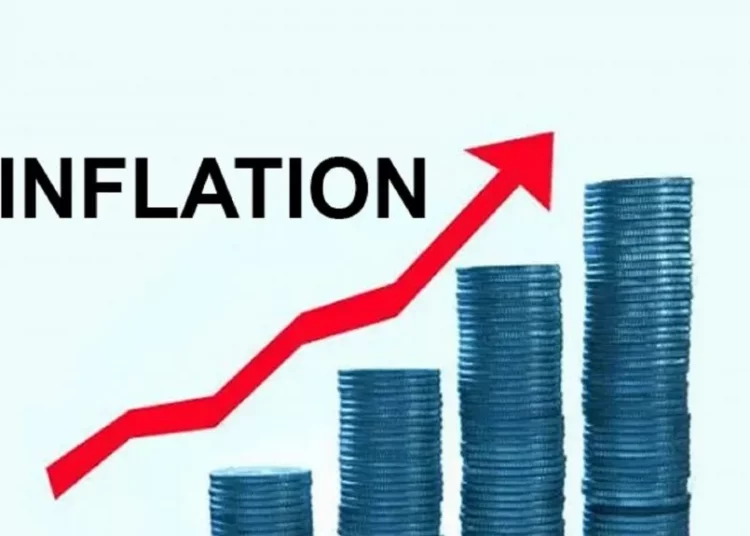With the rebased inflation figure put at 24.48 per cent for January, a substantial decline from 34.8 per cent in December last year, analysts have said the reduction should not be celebrated as price pressures still persist.
The National Bureau of Statistics (NBS) announced the latest rebased inflation figures with 2024 used as the base year, putting the rate at which prices of goods and services rise at 24.48 per cent.
The latest data has seen food inflation drop in January from 39.8 per cent to 26.08 per cent while core inflation declined to 22.59 per cent from 29.28 per cent in December last year.
Despite a significant drop in Nigeria’s inflation rate to 24.48% in January 2025 from 34.80% in December 2024, the reality tells a different story, as the cost of goods and services continues to rise.
The sharp decline in the inflation figure, as announced by the NBS, is attributed to the rebasing of the CPI rather than an actual reduction in the prices of commodities.
Statistician-general of the federation, Adeyemi Adeniran, made the announcement on Tuesday during a press briefing in Abuja.
He explained that the rebased CPI now stands at 24.48 per cent year-on-year for January, compared to 34.80 per cent recorded in December under the old methodology.
“The general prices of goods and services in the country have declined compared to the 34.80 per cent in December, which used the old template,” Adeniran said.
The rebasing process involves updating the reference year and adjusting the basket of goods and services used to calculate inflation. This aims to better reflect current consumer spending patterns, ensuring inflation data more accurately represents the economy.
According to the new inflation breakdown, urban inflation stood at 26.09%, while rural inflation was recorded at 22.15%. The rebased food inflation rate was 26.08% in January, showing a significant decline from 39.84% in December.
Meanwhile, the rebased core inflation index, which excludes volatile agricultural products and energy costs, stood at 22.59% year-on-year.
While the new data suggests a slowdown in inflation, Nigerians continue to experience rising prices of food, transportation, and other essential goods.
Many households and businesses report that the cost of living is increasing, contradicting the impression that inflationary pressures are easing.
The lower inflation figure does not necessarily mean a reduction in actual prices. Instead, it reflects a change in how inflation is calculated. With ongoing supply chain disruptions, high exchange rates, and fuel price volatility, the cost of goods remains on an upward trend.
For many Nigerians, daily expenses such as food, rent, and transportation have continued to rise despite the lower official inflation rate.
With the newly rebased inflation figure standing at 24.48%, the Central Bank of Nigeria (CBN) is expected to respond by adjusting its monetary policies.
The apex bank is set to hold its Monetary Policy Committee (MPC) meeting this week, where it is anticipated that interest rates could be lowered to stimulate economic growth.
The CBN had previously maintained a tight monetary policy stance to combat inflation, including increasing the benchmark interest rate multiple times. However, with the inflation rate now appearing lower on paper, the bank may consider easing interest rates to support businesses and encourage borrowing.
Commenting, the director and chief executive of Centre for Promotion of Private Enterprise (CPPE), Dr Muda Yusuf noted that the decline in inflation figures did not come as a surprise given the review of the computation base year from 2009 to 2024.
According to him, the inflation figures additionally have a strong base effect given the high inflation regime in 2024, which had a considerable effect on the year-on-year inflation outcomes.
“Besides, transaction demand in December 2024 was typically much more intense because of the festivities while the spending momentum in January was predictably much slower because of lower disposable incomes following intense spending in the previous month.
“However, it is important to clarify that a drastic reduction in inflation figures is not tantamount to a reduction in price level. Inflation reduction simply means a reduction in the rate of increase in the general price level, not a reduction in price.
“The drastic deceleration in inflation should therefore be cautiously celebrated. The reality of high prices has not changed and remains a major factor in the cost of doing business, cost of living and poverty equation in the country. Households and firms are still concerned about high energy costs, the strength of the naira, high interest rate, cost of imports, transportation costs and insecurity.”
He urged government to recalibrate its strategies to address these major cost drivers.
“What businesses and households desire at this time is a reduction in the general price level from the incredibly high levels in 2024 to a substantial moderation in 2025, which is defined in technical parlance as disinflation.”
“With the drop in the rate of rise in prices, Muda said, “the good news, however, is that we are beginning to see indications of such reductions in PMS, diesel, some food items and pharmaceutical products. It is hoped that this trajectory will be sustained in the course of the year.”
On his part, managing director of Arthur Steven Asset Management Limited and former president of the Chartered Institute of Stockbrokers (CIS), Olatunde Amolegbe, said “while we still have significantly higher prices within the economy the inflation figures have dropped because the denominator, which is the size of the economy itself, has changed because it’s now larger than what is being used previously.
“In the case of food inflation for instance some products that were not captured previously have now been included. For me any effort to accurately capture this activity is useful because of their impact on macroeconomic indexes, which also impact people’s lives.”
With the Monetary Policy Committee (MPC) meeting set to be held today, most experts still expect the committee to hold rates despite the newly released rebased inflation rates, saying the impact of the figure will not be felt anytime soon but probably later in the year.





